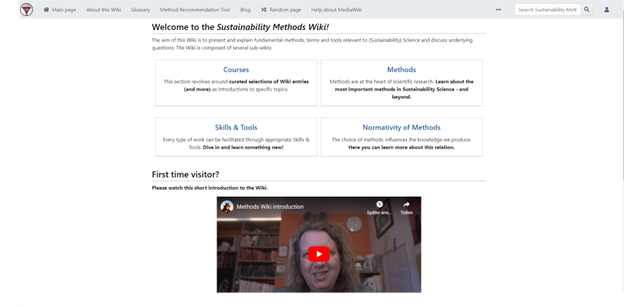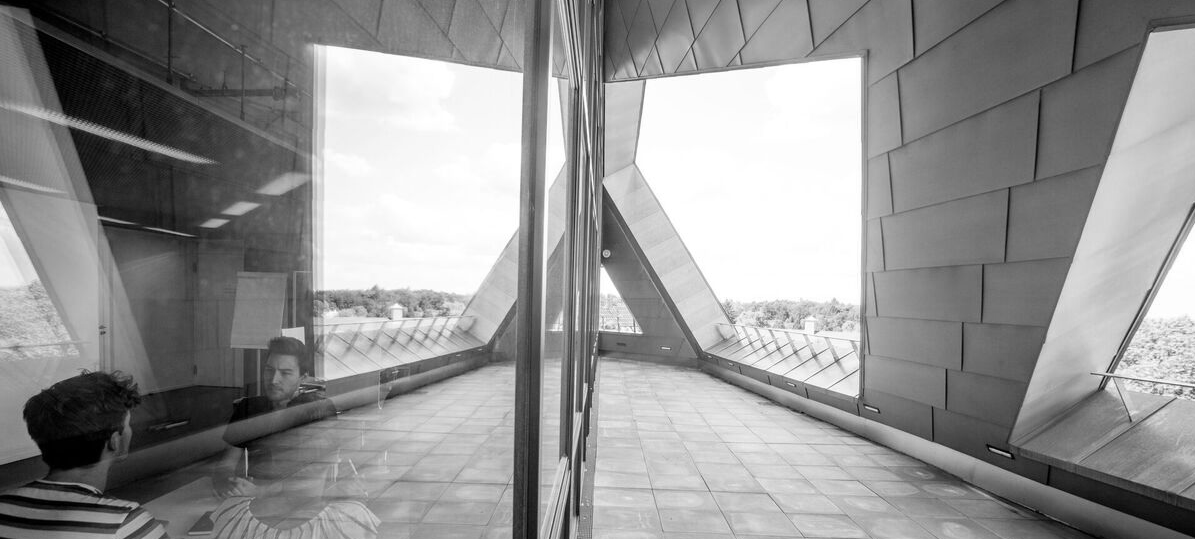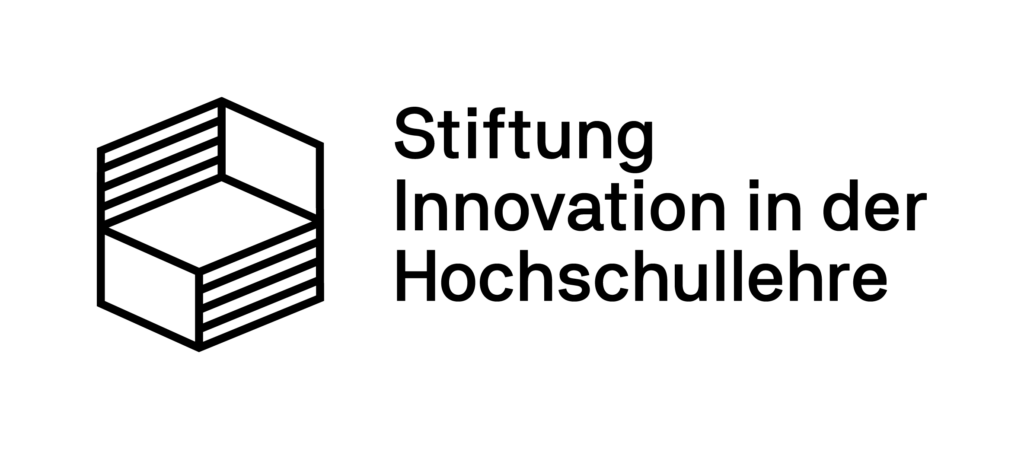by Dr. Anna-Lena Rau and Neha Chauhan
Sub-project 4 of the DigiTaL project is dedicated to improving and expanding the Methods Wiki created by Henrik von Wehrden and his team. Within the DigiTaL project, Neha Chauhan and Anna-Lena Rau are responsible for working on the Wiki. In the future, new methods from different faculties at Leuphana University will be added to the Wiki, a feedback-mechanism will be implemented and the Wiki will be introduced to different universities on a national and international level.
You can find the Methods Wiki under this link: https://sustainabilitymethods.org/index.php/Main_Page

Background
The aim of the Sustainability Methods Wiki is to present and explain diverse scientific methods, terms and tools relevant to science and discuss underlying questions. It shall serve as a resource for students, researchers, teachers and any interested readers and learners around the globe and tries to bridge the gap on how we approximate empirical knowledge, and how we ought to act based on this. Through an inclusive, reflexive and critical approach to the methodological canons, we try to contribute to solving the disciplinary slumber that defines much of post-modern science.
The general idea of the Wiki is to build on concrete design criteria that serve as a general orientation for students and researchers. These criteria help to divide the methodological canon and differentiate first and foremost into quantitative and qualitative methods as well as into methods that serve as inductive or deductive approaches. In addition, methods are divided across scales, where spatial scales are divided into methods that are applied in a global context, methods that focus on individuals (e.g., people or trees) and the great in-between, which can be systems, river catchments, organizations etc. Temporal scales divide methods into those that serve knowledge about the past, the present and/or the future. This systematic approach building on concrete design criteria allows to differentiate and contextualize the scientific canon of methods into concrete groups. To this end it is important to note that while some methods are concretely located within few of the design criteria, other methods cover the wider space of different criteria. An example would be statistical correlations, which can be utilized across a variety of spatial scales.
The Wiki follows the idea that normal science has established knowledge that can be summarized in textbooks, and that this knowledge can be presented in a -supposably- comprehensive form. Importantly, a critical perspective is needed in order to reflect about the better or worse of certain methods under the assumption that all methods contribute pieces of the puzzle of knowledge. To this end the Wiki follows the philosophy of critical realism, and underlines that all empirical knowledge will always be subjective.
There may be larger responsibility such as in ethics and logic that may be able to contribute objective knowledge, yet this is not what empirical scientific knowledge is ultimately about. Since scientific disciplines are often either trying to bridge or to ignore the gap between these two domains of knowledge, we aim to contribute to a critical debate about scientific discipline as such. While it is undeniable that the complexity of the post-modern world has the approaches by different domains of knowledge it should be clear that none of those is better or worse than any other domain. Conflicts about ressources or priority or even superiority of knowledge are ultimately futile, and science has the responsibility to rise above these petty debates. The Wiki thus aims to open the debate about a plural yet critical reflection about scientific methods. Since we to this day live in a world of finite resources, scientists need to seize the responsibility to focus on suitable methods in a given context, while safeguarding that the diversity of knowledge is included and no minorities of knowledge are neglected.
The Wiki tries to educate students and contribute to the wider debates in science to enable scientists to go beyond normal science. The problems society faces in the 21st century are well beyond the methodological array we currently have. Consequently, science needs to emerge towards a wider recognition of the diversity and intersectionality of the problems we face, and needs to connect the different domains to create solutions. The reflection on methods and the moving beyond normal science is thus the search for additional design criteria that allow to differentiate the scientific canon in order to do justice to the nestedness of knowledge or the lack thereof.
Sections or Sub-Wikis
In order to push the current limits of scientific methods there are thus several vectors on how scientific evolution can occur. While new scientific methods rarely emerge, the technological evolution on the one end and the increase in critical potential on the other hand led to the development of numerous novel approaches that were proposed over the last decades. Yet new knowledge is often unraveled by the combination of methods, where one method uses the sampling made by another method to come to an alternative analysis. In addition, methods are often relocated into new contexts to unravel new knowledge, and the development of science often builds on such cross-disciplinary fertilization.
In order to allow for a finer differentiation to this end, the Wiki is clustered into different levels of methodological knowledge. The ground level encompasses the fundamentals that methodological knowledge is based upon. The first level includes aspects of scientific methods that are universally agreed upon, such as having an informed consent within interviews. The second level accounts for different schools of thinking that exist within methodological approaches. The third level recognizes aspects that are evolving and where even with sub-communities there is no shared universal understanding as of yet. These levels can be equally seen to represent a range from knowledge towards experience, and this differentiation is of fundamental relevance when recognizing the time one needs to spend to work your way into scientific methods.
The Wiki contains several additional implementations, such as a Method Recommendation tool that allows some simple comparison between different methods, as well as a long glossary that supports linguistic consistency. To this end much of the work within the Wiki is a question of jargon and wording, because different scientific communities often have diverse lingo for one and the same thing. This creates a huge burden on the writing, yet we aim for coherence, priority and consistency in writing the Wiki.
The Wiki is clearly a team effort, and dozens of members of the team have so far contributed to the Wiki, often with diverse backgrounds to guarantee expertise in the respective methods, as well as within different projects. We aim to further add to the Wiki by a diverse team, and currently add entries based on the demand of methods within bachelor theses at Leuphana.
While the Wiki is already utilized in dozens of courses at Leuphana, there is also an increasing number of courses outside of Leuphana making use of the wiki. In the future, the usage of the Wiki at other universities should be further encouraged by actively introducing the Wiki to national and international universities.


